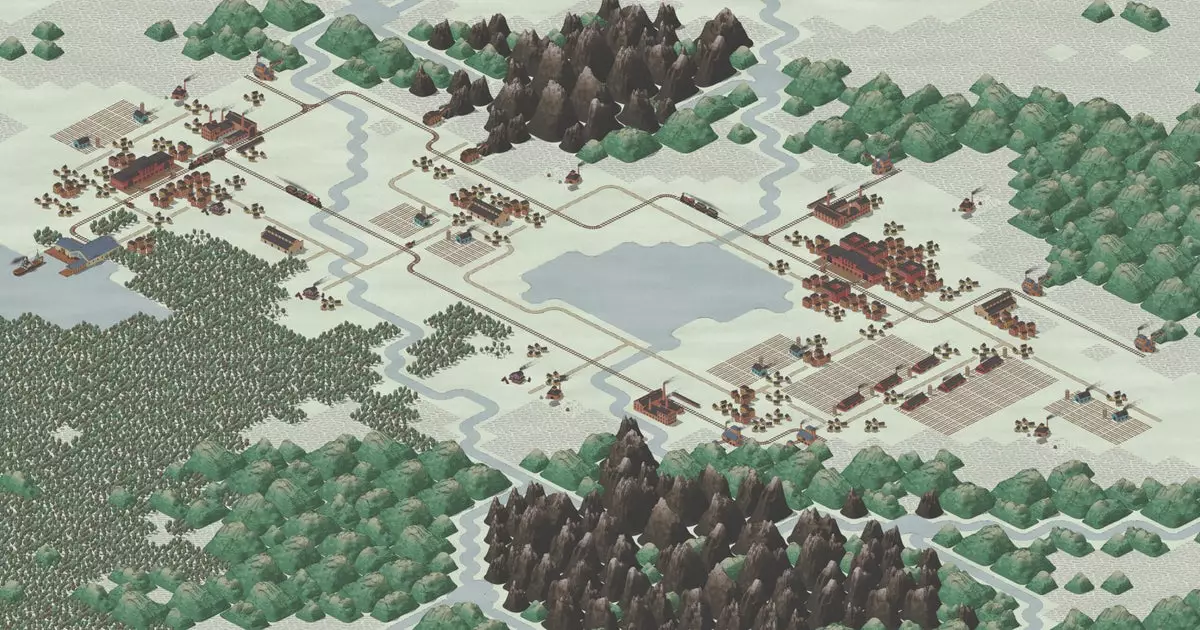Times of Progress represents a significant milestone not only for its creator but also for genre enthusiasts eager to explore the intricacies of city-building games. This title offers a fresh perspective on the beloved city management genre, harkening back to an era marked by industrial innovation and the complexities of socio-economic dynamics. The transformative spirit of the Industrial Revolution courses through its gameplay mechanics, offering players a chance to engage with history while donning the cap of an urban planner.
The genesis of this ambitious project can be traced back to the initial news tip from Sin Vega, a notable figure in the strategy gaming community. Sin’s advice stirred the writer’s enthusiasm but also induced a fair amount of trepidation. Writing about Times of Progress was akin to performing for a master in a dojo of historical simulation—assertively impressive yet nerve-racking.
At first glance, Times of Progress captivates with its charming aesthetic. The game’s visuals are marked by thoughtfully designed environments that blend procedural generation and isometric projection. Landscapes, blending pale earth tones, vibrant red bricks, and lush greens, present a vibrant tableau that feels alive, albeit with a touch of minimalism. While it may lack the extravagant graphics seen in contemporary titles, its charm lies in the elegance of simplicity, allowing the underlying mechanics to shine.
Animation plays a crucial role here, as whimsical touches—smoke from industrial chimneys and gradual transformations of buildings—add depth and character. The world feels dynamic, inviting players to explore as they construct their cities. This curated visual experience sets the stage for players to immerse themselves fully in the challenges that arise during the tumultuous Industrial Revolution.
At the core of Times of Progress lies a compelling blend of gameplay mechanics that balance economic management with historical context. Players venture into a world where scientific advancements are not merely unlocked through research but are governed by a timeline consistent with the Industrial Revolution’s progression. This adds a layer of authenticity, emphasizing that innovations such as steam engines or electrolysis emerge as milestones impacting the player’s city.
Trade becomes an essential component, serving as the backbone of inter-city relationships. Unlike other city-builders that often blur the lines with military conquests or cultural exchanges, Times of Progress focuses on a mercantile approach. Players engage in a delicate dance of commerce, balancing supply and demand in a historical setting that respects the realities of that era.
No city-building game would be complete without addressing the labor dynamics, and Times of Progress thoughtfully incorporates this aspect. The threat of worker strikes introduces a layer of tension that requires players to navigate labor politics judiciously. Will you meet the demands of your workforce, ensuring stability? Or will you resort to suppression, risking unrest? The choices players make resonate deeply within the community, reflecting the socio-political complexities of industrialized society.
The potential for Times of Progress to flourish lies not only in its current offering but also in the promise of ongoing updates and community engagement. The developer, Pressing Thumbs Games, is a solo endeavor based in Berlin that underscores the passion and craftsmanship involved in bringing this game to life. As the developer continues to refine the gameplay experience, players can anticipate enhancements and expansions that could introduce further dimensions to the game’s already rich tapestry.
The current landscape of city-building games often veers towards a heavy reliance on graphical prowess; however, Times of Progress charts its own course. By placing an emphasis on historical accuracy, economic stratification, and social dynamics, it distinguishes itself in a crowded genre.
Times of Progress invites players to not only build and manage a city but also to engage thoughtfully with the historical and socio-economic narratives that shaped the modern world. As the community grows and the game evolves, it heralds the potential for deeper exploration into the complexities of industrialization—both its marvels and its tribulations.


Leave a Reply